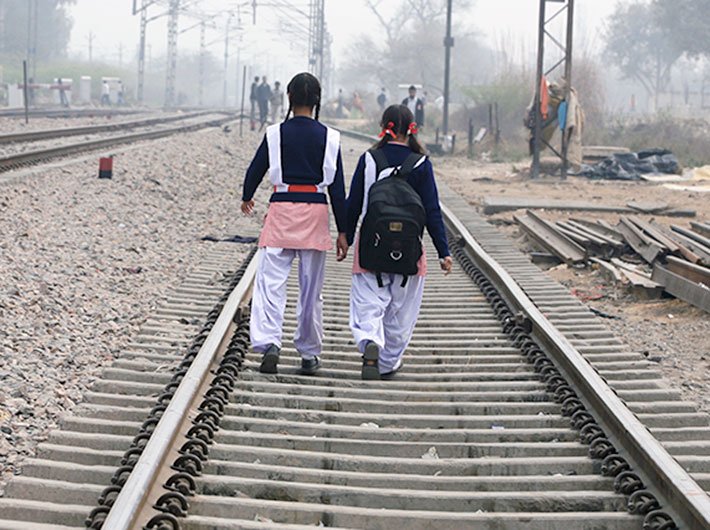According to Praja Foundation’s report poor quality of education and teachers are to be blamed
Even though Municipal Corporation of Greater Mumbai (MCGM’s) budget allocation for education has doubled between 2009 -2015, there is a drop of 11 percent students from municipal schools during this period.
Despite education budget increasing from Rs1,255 crore in 2009-2010 to Rs 2,870 crore in 2014-2015; 51,649 students have dropped out of municipal schools. While per child allocation of education budget between the years 2013-2014 and 2014-2015 increased from 55,676 to 60,729 respectively, actual expenditure per child in 2013-14 was 32,118.
Twelve out of every 100 students enrolled left school between the years: 2012-2013 and 2013-2014. These are the latest findings of Praja Foundation’s latest white paper on state of municipal education in Mumbai.
Findings reveal that 67,477 children took admissions in Class I in municipal schools in the year 2009-10 but the number dropped to 39,663 in 2013-14 (a drop of 41%).
Besides that, 21% students who enrolled in Class I in 2009‐10, did not make it to Class 5 in 2013‐14.
There is a mere 67% pass out rate of these schools in comparison to 83% passing percentage of private schools.
“At the current rate, the number of students taking admission in Class I will likely fall to 23,072 by 2016‐17,” says the report.
Further only 1.3% of 4th standard students who appeared for the Middle School Scholarship exam and 0.1% of the 7th standard students who appeared for the high school scholarship exam from municipal schools received scholarship in 2013‐14.
Speaking of wards, 20% Class 4 students in ward number’s G/N,L,P/S,C,D,T and 10% in Class 7 in the same wards were found to be continuously absent in continuous and comprehensive evaluation (CCE) under Right to Education Act.
“As per RTE related norms, MCGM schools are doing quite well. In terms of infrastructure, they are nearly 100% compliant; in teachers’ evaluations, teachers are mostly rated as ‘good’ or ‘very good’ on all parameters; in CCE 62% students in 4th standard and 69% in 7th get more than 60% marks, yet there is a massive dropout rate,” the report says.
Out of 1,949 teachers in wards-L,G/N and P/south, inspection reports were given only for 856, who have been rated ‘good’ and ‘ very good’ on all parameters.
Despite this, the survey found quality of education , teachers and school infrastructure to be the main reasons given by parents for dissatisfaction in education standards in municipal schools.
Nine percent municipal school students were taking private coaching from class teachers, 83% private tuitions, 5% coaching classes and 35 from others.
Continuing the trend of earlier years our representatives in the municipality did not consider important to undertake any significant deliberations on the topic of quality of education in municipal schools or MCGM administrative processes . Out of the 227 councillors ,157 did not ask a single question on education during the entire year i.e.; 2013-2014. Only six asked more than four education‐related questions and four questions were asked on drop out rate.
Project Director,Praja, Milind Mhaske says, “People’s representatives: municipal councillors, MLAs and the state government, the administrators, have all abandoned education and are running a department bereft of any motivation to provide education to students of Mumbai. At this rate we may have an education budget, an education department and municipal schools but no students utilising them.”
“There is something terrible in the state of the Education Department of the MCGM and no one is taking responsibility. We are at a very crucial stage and if we do not do something now to prevent this rot we will be letting our children down, especially children who come from economically weaker sections. We need the focus back on good quality education. To do this we will need to bring in more accountability and transparency in the department. Performance of teachers and children as per the RTE norms must be carried out by an independent third party. The present system of self‐evaluation must be stopped by the department. Focus is required on more teacher trainings and freeing the teachers from extra governmental work such as Census work and Election duty” said Nitai Mehta, Founder and Managing Trustee, Praja Foundation.
The survey was conducted in March-April 2014 on 4276 households with school going children.
Read the full report here.

